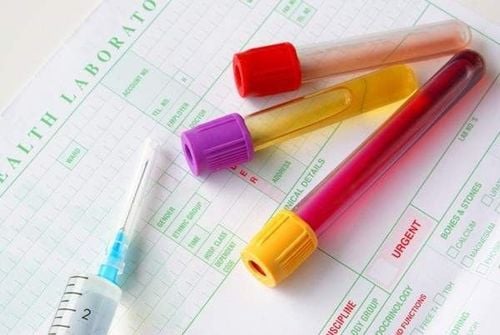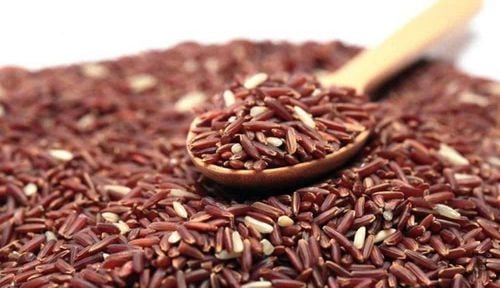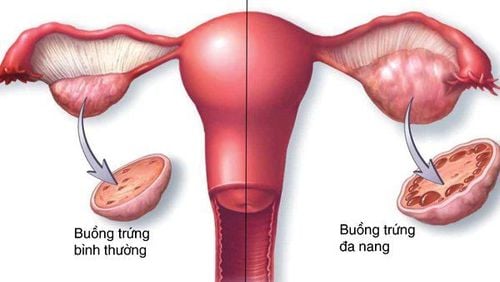This is an automatically translated article.
There are many factors that can affect fertility such as your and your partner's age and lifestyle. The age factor cannot be changed, however, you can adjust lifestyle factors to increase female fertility.
1. Common causes of female fertility problems
There are many different health problems that can contribute to a woman's fertility, including:
Ovulation disorders, which affect the release of eggs from the ovaries. These include hormonal disorders such as polycystic ovary syndrome, hyperprolactinemia, and thyroid problems (hyperthyroidism or hypothyroidism). Abnormalities in the uterus or cervix, such as polyps or fibroids. Fallopian tube damage or blockage, often caused by pelvic inflammatory disease. Endometriosis, which occurs when tissue that normally lines the inside of the uterus grows outside the uterus. Primary ovarian failure (early menopause), occurs when the ovaries stop working and menstruation stops before age 40. Pelvic adhesions - bands of scar tissue that bind organs in the pelvis after a pelvic infection, appendicitis, or abdominal or pelvic surgery. Medical conditions related to amenorrhea symptoms, such as diabetes but poorly controlled medical conditions, celiac disease, and some autoimmune diseases such as lupus. Age: Delaying pregnancy can decrease your chances of conceiving because the decline in egg quantity and quality that occurs with age makes it more difficult to conceive.

Tuổi càng lớn càng làm giảm khả năng thụ thai
Is it harmful to take emergency contraception?
2. Measures to enhance female fertility
Healthy lifestyle choices can help you promote fertility. Take steps to:
Maintain a healthy weight: Being overweight or underweight can inhibit ovulation. Prevent STDs: Infections such as chlamydia and gonorrhea are the leading cause of female infertility. If possible, avoid working the night shift: Regularly working night shifts can put you at higher risk of infertility, by affecting hormone production. If you work the night shift, try to get enough sleep at the end of the shift. While stress doesn't directly affect your ability to get pregnant, you should consider minimizing stress and taking countermeasures like relaxation techniques when you're trying to conceive.

Giảm căng thẳng và duy trì thư giãn khi bạn đang muốn mang thai
3. What should be limited?
To protect fertility, you should:
Don't smoke: Tobacco use has been linked to reduced fertility and smoking causes ovulation and depletion of eggs earlier. If you smoke, you should quit as soon as possible. If you need support, you should consult a doctor or go to a smoking cessation counseling room for effective advice and guidance to quit smoking. Limit alcohol intake: Heavy drinking is associated with an increased risk of ovulation disorders. If you want to get pregnant, consider avoiding alcohol. Limit caffeine: A woman's fertility may not be affected if caffeine consumption is less than 200 milligrams per day. Therefore, you should consider limiting your caffeine intake to one or two 6- to 8-ounce cups of coffee per day. Moderate exercise: Excessive physical activity can inhibit ovulation and decrease the production of the hormone progesterone. If you are at a healthy weight and are planning to become pregnant, consider limiting vigorous physical activity to less than 5 hours a week. Avoid exposure to toxins: Pollutants and environmental toxins such as pesticides, dry-cleaning solvents, and lead can adversely affect fertility.

Bảo vệ khả năng sinh sản bằng cách hạn chế tiếp xúc với các hóa chất và độc tố
Customers can come to the Center for Reproductive Support - Vinmec International General Hospital. This is the leading center in Vietnam, which has developed and applied a comprehensive medical examination and treatment process, combining both gynecology and obstetrics and gynecology to provide the optimal method for each patient's case.
Advantages when customers choose Vinmec fertility center:
Equipped with modern equipment, clean air system according to international standards to ensure lab quality, single cabinet system to optimize quality embryo, improving the success rate for each cycle of artificial insemination. Implement most advanced assisted reproductive techniques in the world: ICSI (injection of sperm into the oocyte cytoplasm); support embryo escape membrane; Reproductive reserve: embryo freezing, sperm freezing, oocyte freezing to help customers take the initiative in giving birth at will, transferring embryos on day 5, minimizing pregnancy; male infertility techniques (PESA, MESA, TEFNA, TESE) Besides advanced reproductive support methods, a team of excellent doctors in the country and the world, with prestige and long-term experience in the field of infertility . Recommended video:
Infertility treatments: Hope for infertile couples
Please dial HOTLINE for more information or register for an appointment HERE. Download MyVinmec app to make appointments faster and to manage your bookings easily.
Reference source: mayoclinic.org












